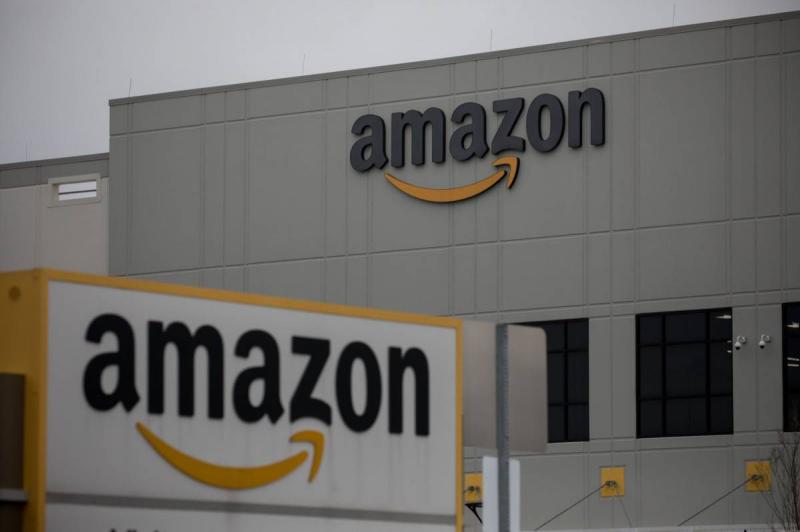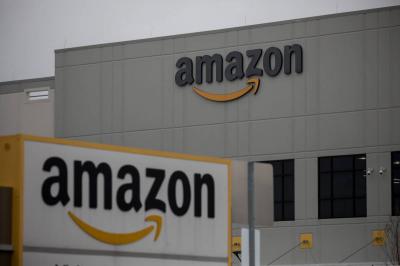Jeff Bezos, the founder of Amazon, has the capabilities to venture into space, as does Tesla founder Elon Musk. In one way or another, the world's wealthy have long ignored the majority of the population. The combined wealth of the 500 richest people in the world has reached $8.4 trillion, an increase of more than 40% compared to its value a year and a half ago when the repercussions of the COVID-19 pandemic began. While technology companies have become the biggest beneficiaries of the economy and amassed huge riches, they are paying lower tax rates than grocery stores. The wealthy founders of these companies can exploit legal loopholes to pass on massive gains to heirs, largely tax-free.
### International Moves
A group of nations that have enough influence to end the dominance of tech giants is now moving forward with taking concrete actions. Leaders of the Group of Seven (G7), including U.S. President Joe Biden and British Prime Minister Boris Johnson, met in South West England this past weekend, where they are expected to approve a plan to close tax system loopholes that cause global tax evasion. While the proposed changes will require the approval of a broader group of countries, including China, before they become reality, the G7 agreement represents a historic turning point after decades of declining tax rates for multinational corporations.
Philippe Martin, a former adviser to French President Emmanuel Macron who now leads the Council of Economic Analysis, stated, "It is very easy for multinational companies and the wealthy to evade taxes, and what we see with the G7 means that it is time for politicians to regain control." He further added, "There is an opportunity that represents a turning point and they realize they need a tax authority to support their plans for more spending."
The agreement will bolster Biden's plans to raise taxes on corporations and the wealthy by increasing tax brackets, taxing heirs more, and achieving equity between investors and employees regarding tax rates. The proposals come as part of a movement to revive initiatives targeting the wealthy worldwide, from Buenos Aires to Stockholm to Washington, including new taxes on capital gains, inheritance, and wealth taxes. These initiatives gained momentum after the COVID-19 crisis exposed significant gaps in government budgets around the world.
### U.S. Efforts
U.S. Treasury Secretary Janet Yellen framed the G7 deal as a means for governments to protect their national sovereignty in setting tax policy. Following a meeting of the finance ministers from the G7 countries in London last week, prior to this week’s G7 leaders' summit, Yellen remarked, "For a long time, there has been a global race to lower corporate tax rates." Finance ministers from Germany, Indonesia, Mexico, and South Africa joined Yellen in an op-ed published in the Washington Post on Wednesday, urging all countries involved in international tax discussions "to come together on a political agreement that aligns with the agreed timeline and ahead of next month's G20 finance ministers' meeting."
Meanwhile, Amazon and some other tech companies have supported the agreement, believing that the global system would be more manageable than the costly alternatives pursued by individual nations. Bezos has also expressed support for raising U.S. corporate taxes to fund infrastructure costs. Advocates for higher taxation argue that these steps are necessary to ward off rising populism and ensure the sustainability of capitalism.
Gabriel Zucman, an economics professor at the University of California, Berkeley, specializing in wealth and inequality, stated, "The biggest winners of globalization are those large multinational companies that have seen their effective tax rates collapse, which can only lead to increasing rejection from people towards this form of globalization." The World Economic Forum, which organizes the annual gathering of the wealthy and powerful in Davos, Switzerland, released a white paper this month stating that tax systems must be redesigned efficiently to tax capital and multinational corporations.
Governments need revenue, and progressive taxes will be a key mechanism to compensate for the already unequal recovery, according to the report.
### Low Tax Defenders
Conservative economists, such as Douglas Holtz-Eakin, president of the American Action Forum, disagree that imposing higher taxes on the wealthy and corporations will harm the economy. Holtz-Eakin, who served as a consultant for President George W. Bush, stated, "Higher taxes on capital generally raise the possibility of a slowdown in productivity growth." This viewpoint loses strength despite increasing discontent over how highly profitable companies reduce their taxes. Analysis from Fair Tax Mark, a progressive research organization, revealed that Facebook, Apple, Amazon, Netflix, Google, and Microsoft avoided paying taxes on wealth close to $100 billion from 2010 to 2019, as many of these profits were funneled to non-taxable areas or so-called tax havens like Bermuda, Ireland, Luxembourg, and the Netherlands.
Amazon paid an effective corporate tax rate of 11.8% in 2020, according to Bloomberg Economics, and it is not an exception among very successful tech companies. Facebook, founded by Mark Zuckerberg, the fifth richest person in the world, paid 12.2% last year.
### Tax-Free Rich
An Amazon spokesperson, asked to comment on this matter, referred to some previous company data relating to its tax bills, including disclosed Amazon taxes, noting that what is reported reflects their ongoing investments, employee compensations, and U.S. taxes according to current laws. As a mix of a tech company and a retailer with a substantial physical infrastructure, Amazon is able to utilize a large number of long-term tax preferences to maximize property, buildings, and research and development rights. Bezos has pushed to reinvest profits back into the company, a strategy that keeps taxable income low and tax exemptions high.
Amazon completely avoided federal income taxes in 2017 and 2018 thanks to its smart use of tax law. Since then, the company has had to pay some income taxes to the IRS, but significantly less than the 21% corporate tax rate established during President Donald Trump's administration. Billionaires often pay less personally than their companies. For instance, Bezos saw his wealth increase by about $77 billion in 2020, according to Bloomberg’s Billionaires Index. However, in the U.S., taxes on stock gains are only assessed when sold, a rate much lower than that paid by high-wage workers, meaning Bezos owed at most a few billion dollars in taxes to the U.S. Treasury last year.
Nonprofit media organization ProPublica reported on Tuesday that many billionaires, including Bezos, did not pay any federal income taxes in some years. The organization obtained confidential tax documents for thousands of the wealthiest Americans, including Warren Buffett and Michael Bloomberg, Bloomberg LP's owner, who each told Bloomberg and ProPublica that they paid their due taxes.
To remove advantages in the U.S. tax code benefiting the ultra-wealthy, Biden proposed taxing inherited assets that currently escape fees and bolstering the highest tax rate on investment income so that high-wage workers and investors pay the same amount. On the international level, leaders are seeking a global minimum tax of at least 15% for the world's most profitable companies — an agreement expected to be pushed forward at the ongoing G7 meeting.
### Future Deal Impact
A global tax deal could see technology companies face higher effective tax rates, according to a research report from Morgan Stanley that found Facebook and Google could pay 28% on their global profits, up from 18% and 17% under current rules, respectively. Despite all the talk of taxing the wealthy, Biden's proposals and the international tax deal face serious hurdles before adoption. While some of his fellow Democrats, who narrowly control Congress, are pushing for more drastic changes to estate and wealth taxes, others are hesitant.
The next step in the global tax negotiations, initiated by the Organization for Economic Cooperation and Development years ago and involving nearly 140 countries, is to secure an agreement among the G20. Finance ministers from the G20, who collectively control about 90% of the global economy, will meet in July in Venice, Italy. Among the obstacles to reaching an agreement by the end of the year is China, which may seek exemptions from the minimum tax requirements. Pascal Saint-Amans, director of the Centre for Tax Policy and Administration at the OECD, expressed hopes that global efforts could finally bring an end to this madness, as there are loopholes everywhere and no one seemed to care. Tax law undermines the goal of capitalism and the free market economy.




